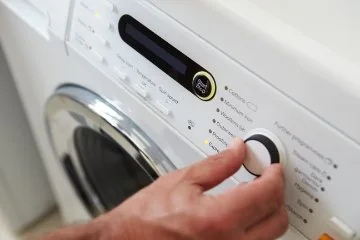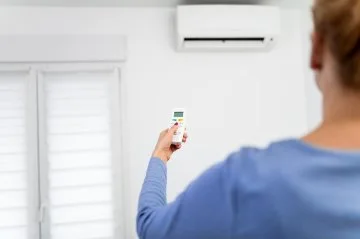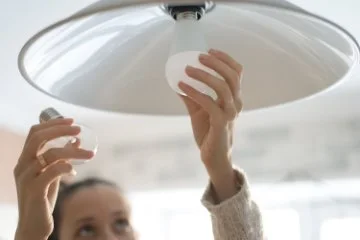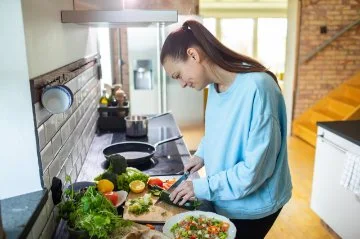Find information on how to reduce energy use at home.
To save energy use at home consider the following tips:

Energy efficient appliances
- Opt for high Energy Star-rated appliances, particularly fridges and freezers.
- Adjust fridge (3°C to 5°C) and freezer (-15°C to -18°C) temperatures for efficiency.
- Turn off appliances at the wall, especially the TV, to prevent standby power consumption.
- If you have a solar power system, try to reduce power from the grid by using appliances during the day when the solar panels are generating power to your home.
For further information about energy-efficient appliances, visit the Department of Climate Change, Energy, the Environment and Water (DCCEEW) webpage.

Heating and cooling
- Heat and cool efficiently by isolating the rooms in use and closing others off.
- Ensure proper insulation in ceilings and walls to retain cool or warm air.
- Ventilate during summer with morning and late afternoon breezes.
- Save energy by setting the air conditioner to 24° to 27°C in summer and 18° to 21°C in winter.
- Swap electric storage hot water for solar or heat pump water heating.
For further information about heating and cooling, visit the Department of Climate Change, Energy, the Environment and Water (DCCEEW) webpage.

Lighting
- Turn off lights when leaving a room, use natural light in the daytime.
- Use energy-efficient bulbs like fluorescent (CFL’s) or LED’s.
- Save money with convenient solar options for outdoor lighting (security, path, decorative, or holiday lights).
For further information about how to reduce lighting costs, visit the Department of Climate Change, Energy, the Environment and Water (DCCEEW) webpage.

Cooking
- Use energy-efficient appliances like microwaves, electric frypans, and pressure cookers instead of the oven.
- Combine oven usage for items like cookies and dessert to save energy.
- Plan meals and meal prep to avoid peak energy usage during the night.
For further information about how to save energy and reduce waste in the kitchen, visit the Department of Climate Change, Energy, the Environment and Water (DCCEEW) webpage.
Other helpful tips
- Move away from peak times: aim to use appliances outside peak hours (5pm – 9pm), lowering electricity demand. Some appliances also feature timers.
- Street trees: trees on your property can reduce annual heating and cooling expenses by lowering the urban heat island effect through added shade and transpiration. The City of Joondalup can supply, install and maintain street trees on your property.
- Renewable energy: install a photovoltaic (PV) solar panel system for a cost-effective and eco-friendly way to save energy, reduce carbon emissions, cut costs, boost home value, and enhance energy security. Find out more about household renewable energy.
- Waterwise gardens: to reduce your energy usage, you can remove your lawn or artificial turf and replace it with a waterwise garden, and plant trees around your property. Find out more about how the City can support you with your waterwise garden.
- Take advantage of free energy audits and coaching with Energy Ahead.
- Complete a DIY Home Energy Audit: the City libraries have home energy and water audit kits for residents to borrow so that they can perform an energy efficiency audit for free. As part of the City’s Think Green initiative, the City has created a DIY home energy audit so that you can find out how your household uses energy, and what you can do to reduce you carbon footprint. Download the DIY Home Energy Audit below for tips that are tailored to your household energy usage.
